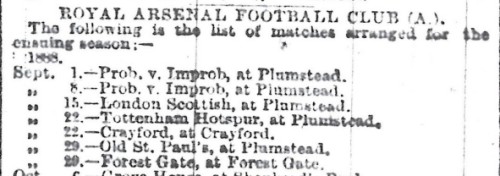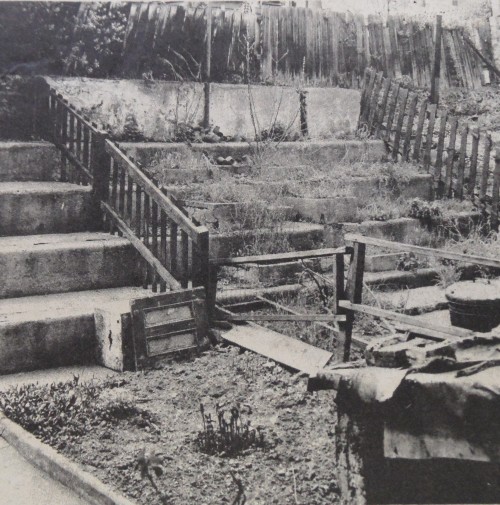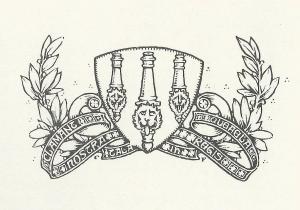Despite it being only the middle of July, Arsenal’s pre-season preparations are well under way with a tournament in Singapore already completed and the Emirates Cup and Community Shield still to come before the very early start to the Premier League season.
Arsenal’s preparations for the season ahead haven’t always been this hectic. For many years it was a case of some running around the pitch to shake off the excesses of the Summer and a couple of kickabouts.
The earliest records of the team playing prior to the start of the season are in 1888, two years after the club was founded. Two games, advertised as the Probables v Improbables, were played on 1 September and a week later. Unfortunately no records of the outcome of these two games exists, nor of the players involved. However, with the club gaining a reputation as one of the leading clubs in London, it is likely that a fair number of trialists had put their names forward to the committee that ran the team. And don’t be fooled by the dates. In the early days of the game, the season started in September with cricket, still being the more senior sport, taking precedence.

Kentish Mercury 21 September 1888
Read More →




